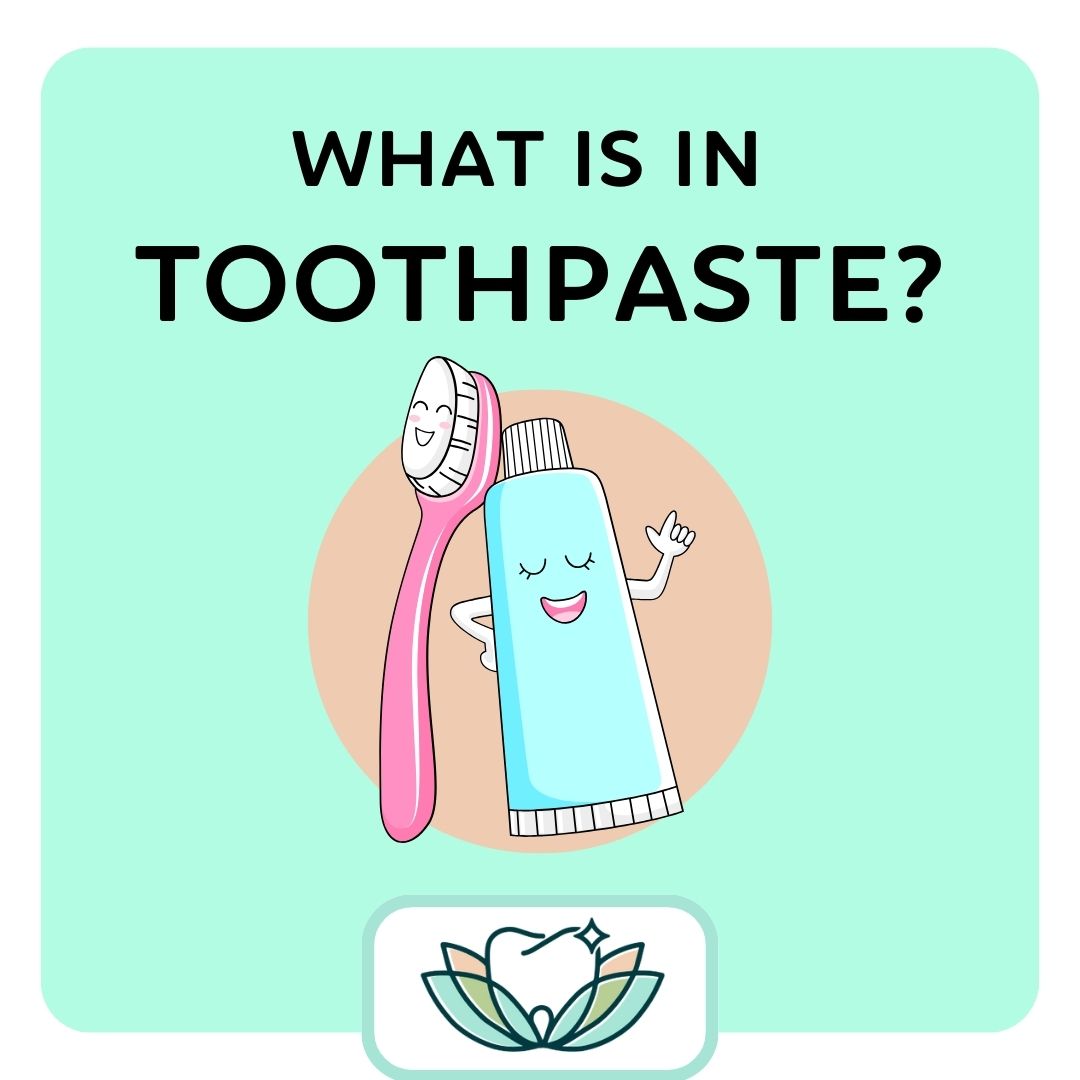
Toothpaste Ingredients
The Ingredients and Science Behind a Smile
Toothpaste is a staple of our daily oral hygiene routine, but have you ever wondered what’s in it and how it works its magic to keep your teeth healthy and your breath fresh? In this blog, we’ll delve into the fascinating world of toothpaste, exploring its ingredients and the science behind its effectiveness in maintaining oral health.
The Basic Ingredients
- Abrasives: Toothpaste contains abrasive particles that help in the physical removal of dental plaque and food particles from the teeth. Common abrasives include calcium carbonate, hydrated silica, and baking soda. These abrasives are gentle enough not to harm the enamel but effective in scrubbing away surface stains.
- Fluoride: Fluoride is a key ingredient in toothpaste, and for good reason. It helps to strengthen tooth enamel, making it more resistant to acid attacks from bacteria and sugary foods. Fluoride also plays a role in remineralisation, which is the process of repairing early signs of tooth decay.
- Humectants: To maintain the proper consistency and prevent the toothpaste from drying out, humectants like glycerine and sorbitol are added. These ingredients keep the toothpaste moist and easy to squeeze out of the tube.
- Detergents: Detergents such as sodium lauryl sulphate (SLS) create the foaming action in toothpaste. This foaming helps to distribute the toothpaste evenly in the mouth and ensures that it reaches all tooth surfaces.
- Flavouring Agents: Toothpaste would not be pleasant to use without flavouring agents. These can include mint, spearmint, or fruit flavours to make brushing a more enjoyable experience. Some toothpaste also contains sweeteners like saccharin to improve taste.
- Thickeners: Thickeners like carrageenan or xanthan gum give toothpaste its familiar texture, ensuring it stays on the toothbrush and does not drip.
How Toothpaste Works
Now that we’ve looked at the main ingredients, let’s explore how toothpaste works its magic:
- Plaque Removal: The abrasives in toothpaste help to scrub away dental plaque, which is a sticky film of bacteria that forms on teeth. This is vital in preventing cavities and gum disease, as plaque build-up can lead to these issues.
- Stain Removal: Many people use toothpaste to maintain a bright smile by removing surface stains from teeth. The abrasive particles gently polish away stains from coffee, tea, tobacco, and certain foods, revealing a whiter and brighter smile.
- Enamel Strengthening: Fluoride is toothpaste’s secret weapon when it comes to strengthening tooth enamel. When fluoride is applied to the teeth, it bonds with the enamel and makes it more resistant to acid attacks. This helps to prevent tooth decay and cavities.
- Fresh Breath: Toothpaste’s flavouring agents and detergents not only make brushing enjoyable but also help combat bad breath. They mask unpleasant odours and leave your mouth feeling fresh and clean.
- Preventing Gum Disease: Regular use of toothpaste with antibacterial agents can help control the growth of harmful bacteria in the mouth, reducing the risk of gum disease and inflammation.
- Remineralisation: In addition to fluoride, some toothpaste formulations contain calcium and phosphate ions that can aid in remineralisation. These ions help repair areas of the enamel that have started to demineralise due to acidic conditions.
Choosing the Right Toothpaste
With a myriad of toothpaste options available in the market, choosing the right one for your specific needs can be a bit overwhelming. Here are some tips to help you make an informed choice:
- Fluoride Content: Ensure that the toothpaste you select contains fluoride. It’s a crucial ingredient for cavity prevention.
- Specialised Formulas: Some toothpaste is designed for specific dental concerns, such as sensitivity, gum health, or whitening. Choose one that aligns with your needs.
- Age-Appropriate: Toothpaste for children and adults may differ in fluoride content and flavour. Ensure you use age-appropriate toothpaste for your family members.
- Avoiding Allergens: If you have allergies or sensitivities, check the ingredient list for potential irritants.
- Consult Your Dentist: If you have specific dental concerns or are unsure which toothpaste is best for you, consult your dentist. They can recommend the most suitable product based on your oral health.
Toothpaste is more than just a pleasant-tasting substance squeezed onto your toothbrush each morning and night. It’s a carefully formulated oral health product that combines various ingredients to help remove plaque, prevent cavities, strengthen enamel, and keep your breath fresh. Understanding the ingredients and science behind toothpaste can empower you to make informed choices about your oral hygiene, ensuring a bright and healthy smile for years to come.
Post a Comment
You must be logged in to post a comment.
